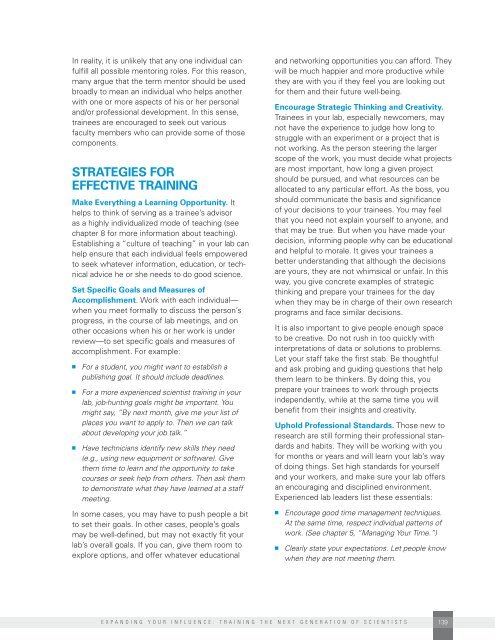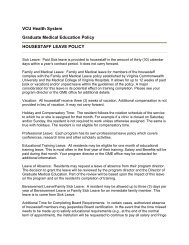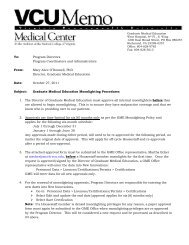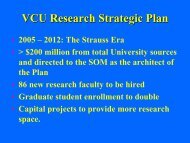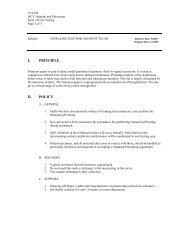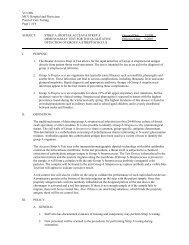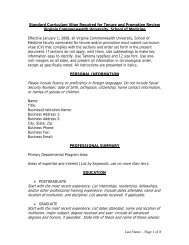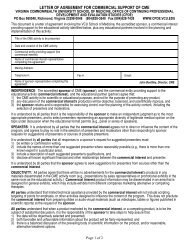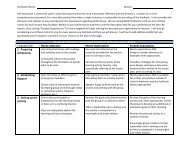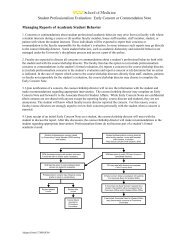Excellence Everywhere - National University of Ireland, Galway
Excellence Everywhere - National University of Ireland, Galway
Excellence Everywhere - National University of Ireland, Galway
- No tags were found...
Create successful ePaper yourself
Turn your PDF publications into a flip-book with our unique Google optimized e-Paper software.
In reality, it is unlikely that any one individual canfulfill all possible mentoring roles. For this reason,many argue that the term mentor should be usedbroadly to mean an individual who helps anotherwith one or more aspects <strong>of</strong> his or her personaland/or pr<strong>of</strong>essional development. In this sense,trainees are encouraged to seek out variousfaculty members who can provide some <strong>of</strong> thosecomponents.Strategies forEffective trainingMake Everything a Learning Opportunity. Ithelps to think <strong>of</strong> serving as a trainee’s advisoras a highly individualized mode <strong>of</strong> teaching (seechapter 8 for more information about teaching).Establishing a “culture <strong>of</strong> teaching” in your lab canhelp ensure that each individual feels empoweredto seek whatever information, education, or technicaladvice he or she needs to do good science.Set Specific Goals and Measures <strong>of</strong>Accomplishment. Work with each individual—when you meet formally to discuss the person’sprogress, in the course <strong>of</strong> lab meetings, and onother occasions when his or her work is underreview—to set specific goals and measures <strong>of</strong>accomplishment. For example:n For a student, you might want to establish apublishing goal. It should include deadlines.n For a more experienced scientist training in yourlab, job-hunting goals might be important. Youmight say, “By next month, give me your list <strong>of</strong>places you want to apply to. Then we can talkabout developing your job talk.”n Have technicians identify new skills they need(e.g., using new equipment or s<strong>of</strong>tware). Givethem time to learn and the opportunity to takecourses or seek help from others. Then ask themto demonstrate what they have learned at a staffmeeting.In some cases, you may have to push people a bitto set their goals. In other cases, people’s goalsmay be well-defined, but may not exactly fit yourlab’s overall goals. If you can, give them room toexplore options, and <strong>of</strong>fer whatever educationaland networking opportunities you can afford. Theywill be much happier and more productive whilethey are with you if they feel you are looking outfor them and their future well-being.Encourage Strategic Thinking and Creativity.Trainees in your lab, especially newcomers, maynot have the experience to judge how long tostruggle with an experiment or a project that isnot working. As the person steering the largerscope <strong>of</strong> the work, you must decide what projectsare most important, how long a given projectshould be pursued, and what resources can beallocated to any particular effort. As the boss, youshould communicate the basis and significance<strong>of</strong> your decisions to your trainees. You may feelthat you need not explain yourself to anyone, andthat may be true. But when you have made yourdecision, informing people why can be educationaland helpful to morale. It gives your trainees abetter understanding that although the decisionsare yours, they are not whimsical or unfair. In thisway, you give concrete examples <strong>of</strong> strategicthinking and prepare your trainees for the daywhen they may be in charge <strong>of</strong> their own researchprograms and face similar decisions.It is also important to give people enough spaceto be creative. Do not rush in too quickly withinterpretations <strong>of</strong> data or solutions to problems.Let your staff take the first stab. Be thoughtfuland ask probing and guiding questions that helpthem learn to be thinkers. By doing this, youprepare your trainees to work through projectsindependently, while at the same time you willbenefit from their insights and creativity.Uphold Pr<strong>of</strong>essional Standards. Those new toresearch are still forming their pr<strong>of</strong>essional standardsand habits. They will be working with youfor months or years and will learn your lab’s way<strong>of</strong> doing things. Set high standards for yourselfand your workers, and make sure your lab <strong>of</strong>fersan encouraging and disciplined environment.Experienced lab leaders list these essentials:n Encourage good time management techniques.At the same time, respect individual patterns <strong>of</strong>work. (See chapter 5, “Managing Your Time.”)n Clearly state your expectations. Let people knowwhen they are not meeting them.expanding your influence: training the next generation <strong>of</strong> scientists139


